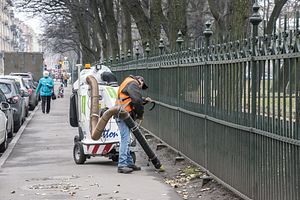In late February, an Uzbek nanny in Moscow beheaded the child under her care and held the severed head aloft outside a metro station. The woman, Gyulchehra Bobokulova, said in court that Allah had told her to do it. Uzbek authorities said she was schizophrenic and TASS reported on March 10 that she’d been transferred to a “mental ward” at Moscow’s Butyrka prison. The story received light coverage in Russian state media, which some observers saw as an attempt to forestall a xenophobic backlash but could also be seen as part of a broader Russian attempt to keep bad internal news off-screen.
Migrant workers in Russia have never had it easy, but in the past two years as the Russian economy slowed and as more and more Central Asians were recruited into ISIS from within migrant worker communities, their predicament hasn’t improved.
In a recent interview with IWPR, Vladimir Mukomel, head of the department for the research of migration and integration at the Institute of Sociology of the Russian Academy of Sciences, said in response to a question about the image of migrants in Russian society that although foreigners are no more likely to commit crimes than Russian citizens, “Whenever migrants and other foreign nationals appear in the news, it’s most likely in stories of them committing crimes and rapes.” This, combined with the rhetoric of politicians, has painted a negative image of migrants for many years.
Mukomel commented, in reference to the light coverage of the Bobokulova case, that it may be for fear of growing xenophobia and resulting social tensions but also noted, “Right now it is unlikely that the authorities would be interested in attracting attention and raising any issues of internal political life of Russia.”
Mark Galeotti wrote recently for Open Democracy that migrant workers in Russia are already socially, economically and politically marginalized. Meanwhile Russian police and security forces lack nuance in their approach to potential militants among migrant workers, falling back on “brute force” which essentially scoops up as much information through untargeted monitoring of email, text, and phone communications. They have the capacity to do so, but Galeotti says Russia lacks the ability to adequately analyzed the information gathered:
So instead they have to fall back on tried and true defensive measures, such as the physical control of likely targets and random interceptions of possible terrorists. To give the Russian security apparatus its due, it is pretty good at this kind of by-the-book tradecraft, but this takes a great deal of manpower, is often counter-productive (not least as Central Asians become alienated by the way they are treated) and depends on the police being alert, efficient and honest.
Increased Russian surveillance of and pressure on migrant communities are directly tied to the reality that many Central Asians have been recruited from Russia to join militant groups in the Middle East. Central Asian states have begun to pick up this line and recalibrate it to suit the states’ narrative that they are under direct threat from ISIS. As reported by Eurasianet, Tajikistan’s general prosecutor said in a recent interview with a state-owned newspaper that 85 percent of those who have joined militant groups to fight in the Middle East were former migrant workers. The prosecutor goes on to say however (as paraphrased by Eurasianet) that a suspected recruiter, “was not intent on enlisting people to fight in Syria, but rather to join up with other alleged IS militants already inside Tajikistan.”
Fayzullo Barotzoda, the director of the Center for Islamic Studies (a body within the Tajik presidential administration), said “Young people from mountain villages who are just settling in city life are vulnerable to ISIL’s propaganda.”
Central Asian migrant workers thus face suspicion in Russia and growing suspicion at home, which are compounded by increased measures by the state to keep tabs on Muslims. Earlier this week news came out that Dushanbe would be ordering mosques to pay for and set up surveillance cameras.

































